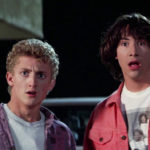Is Free Will Real or Are We All Determined?
by Brandon Vogt
Filed under Christianity and Science

Throughout Sean Carroll's best-selling book, The Big Picture: On the Origins of Life, Meaning, and the Universe Itself (Dutton, 2016), Carroll seems comfortable holding two apparently contradictory views. This has been show throughout our review series. For example, he's fine both believing that causality is illusory (at the fundamental level of reality) and true (at the macroscopic level.)
We see this again in the chapter he dedicates to free will, which begins with this assessment (emphasis mine):
"There's a sense in which you do have free will. There's also a sense in which you don't. Which sense is the 'right' one is an issue you're welcome to decide for yourself (if you think you have the ability to make decisions.)" (378)
Carroll lets us know which view he holds: he thinks free will is fundamentally an illusion, and the only reason we use "free will" language is because it's useful. And why do we find it useful? Later he writes, "The unavoidable reality of our incomplete knowledge is responsible for why we find it useful to talk about the future using a language of choice and causation" (380). In other words, free will is false at the fundamental level of reality and we only use "free will" language at higher levels because we lack a complete knowledge of the current state of the universe. If, like Laplace's Demon, we knew the positions and velocities of all the particles in the universe, understood all the forces they are subject to, and had sufficient computational power to apply the laws of motion, then we would not use "free will" language—we would agree that everything is determined.
(NOTE: In a previous post, I showed why the Laplace's Demon idea comes up short.)
We find the same tension elsewhere in the chapter:
"A poetic naturalist says that we can have two very different-sounding ways of describing the world, a physics-level story and a human-level story, which invoke separate sets of concepts and yet end up being compatible in their predictions concerning what happens in the world." (381)
Setting aside the strange description of "physics-level" stories contra "human-level" stories—doesn't physics include human-level phenomena? Carroll probably means "quantum-level" stories—there's still a big problem. Notice that Carroll only defends these two descriptions as being predictively compatible. In other words, both descriptions are acceptable since both make accurate and/or useful predictions about the world.
What he didn't say is whether it's fine to hold these two views even if they contradict. It's not difficult to find contradictory views of the world that nevertheless make similarly accurate predictions. For example, both Newtonian and quantum theories can accurately predict the motions of human-sized objects. So on Carroll's view, they would both be acceptable. However, at the quantum level, Newtonian physics breaks down. It's simply no longer accurate. At best, it offers a good approximation of macroscopic phenomena, but it's fundamentally inaccurate when you consider reality as a whole.
But that doesn't bother Carroll so much. His poetic naturalism permits him to embrace inaccurate accounts of reality so long as they prove useful in daily life. Carroll writes (emphasis mine):
"There is no such notion as free will when we are choosing to describe human behavior as collections of atoms or as a quantum wave function. But that says nothing about whether the concept nevertheless plays a useful role when we choose to describe human beings as people. Indeed, it pretty clearly does play a useful role." (379)
In essence, Carroll's position is that at the quantum level, everything is determined. But at the level of everyday life, the concept of free will is useful. So poetic naturalists hold both views—both "stories"—in tension.
In fairness to Carroll, he doesn't say that the concept of free will is true on a macroscopic level, only that it's useful. But the implication is that he's fine holding erroneous views so long as they're useful—another example of his instrumentalism, which was examined in a previous post.
There are several problems with Carroll's rejection of free will. First is that it's clearly self-contradictory. Look at the above quote. Carroll twice talks about choosing a description of reality. But if we legitimately choose something, free will must exist. If we aren't able to choose something, then its outcome is determined. Thus we can't choose to deny the reality of free will without falling into contradiction.
A second problem, one Carroll admits, is the haunting fact that it seems as if we have free choice. Day to day, it seems as if we freely choose when to get out of bed, what to have for breakfast, how to start our day, what tasks to engage in, who to talk to, when to do home, etc. The common sense view is that each of us make millions of free decisions every day, some conscious and many unconscious.
Carroll actually agrees (emphasis mine): "The concept of choice does exist, and it would be difficult indeed to describe human beings without it" (379). In fact, in the very next chapter, which concerns meaning, Carroll notes several times how we choose what kind of life to live and how we choose to "expand our horizons, to find meaning in something larger than ourselves" (393). Without free will, it's hard to see how anyone could choose their own meaning or purpose.
A third problem is that if determinism is true, and none of our thoughts, conclusions, or actions are freely derived, then there's no reason to believe our views actually correspond to reality. On determinism, a set of elementary particles in my brain interacted to produce a thought such as, "Free will is false." But if the origin of that thought was determined and involved no free thinking on my end, then I can't trust that thought is true! I was determined to arrive at that conclusion, regardless of whether it accurately describes reality. I may believe that "free will is false," but I have very little confidence that's true.
A fourth problem is that if determinism was true, Carroll would not be writing books attempting to persuade people of that fact. If reality is fundamentally determined, why would he spend time trying to convince readers to freely change their minds, to freely adjust their understanding of the world to align with poetic naturalism? Even if I, a theist, read Carroll's book and become convinced that poetic naturalism was true, I couldn't freely reject my theism, no matter what I chose or how hard I tried—I'm simply determined to believe what I believe.
A fifth and very significant problem is human responsibility. If free will is fundamentally an illusion, then what do we do with praise and blame? Do criminals really shoulder moral blame for their actions? Do heroes really deserve praise? In both cases, the actors were just doing what their elementary particles determined them to do. We should neither praise or blame them any more than we would a tree for growing or the rain for falling.
To his credit, Carroll recognizes this final problem as a serious challenge for determinists. He writes:
"At extreme levels of free-will denial, the idea of 'responsibility' is as problematic as that of human choice. How can we assign credit or blame if people don't choose their own actions? And if we can't do that, what is the role of punishment or reward?" (383)
How does Carroll answer this challenge? He writes:
"Poetic naturalists...don't need to face up to these questions, since they accept the reality of human volition, and therefore have no difficulty in attributing responsibility or blame." (383)
Remember the passage quoted earlier where Carroll affirmed that, "There is no such notion as free will when we are choosing to describe human behavior as collections of atoms or as a quantum wave function". In other words, at the fundamental level of reality, free will is an illusion—everything is determined. But in the passage above, Carroll also affirms "the reality of human volition". Once again, the reason Carroll dismisses the challenge of human responsibility is because he has no problem holding two contradictory views.
Carroll closes his chapter on free will with a chilling look at what the future holds if determinism does prove true:
"To the extent that neuroscience becomes better and better at predicting what we will do without reference to our personal volition, it will be less and less appropriate to treat people as freely acting agents. Predestination will become part of our real world."
Most people will find this vision frightening. It seems Carroll is advocating something like The Minority Report, where citizens are punished for what they appear determined to do in the future.
Thankfully, Carroll doesn't think this will ever actually happen, not because it's a bad idea but because the "complexity of cognitive functioning [makes] predicting future actions infeasible in practice" (384). But such a society nevertheless follows in principle from Carroll's other commitments. There's nothing in principle stopping Carroll and others from punishing thought crimes, or even physical crimes years before they occur. It's not a huge leap to envision killing young children who seem determined to make bad choices in the future. For what on Carroll's view would prevent this?
We have just two more posts left in this series. Next time we'll look at Carroll's chapter on morality, then finally his “Ten Considerations” for naturalists. Stay tuned!
Related Posts
Note: Our goal is to cultivate serious and respectful dialogue. While it's OK to disagree—even encouraged!—any snarky, offensive, or off-topic comments will be deleted. Before commenting please read the Commenting Rules and Tips. If you're having trouble commenting, read the Commenting Instructions.












